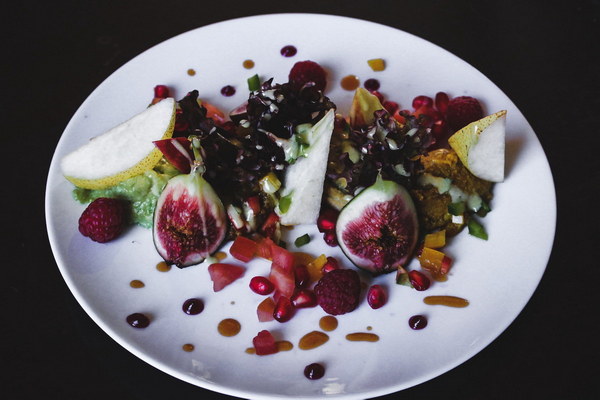Revitalize Your Health The Ancient Art of Traditional Chinese Medicine and Diet Therapy
In the fast-paced modern world, where stress, pollution, and poor diet habits have become common, people are increasingly looking for natural and holistic ways to improve their health. Traditional Chinese Medicine (TCM) and diet therapy, with their ancient wisdom and holistic approach, offer a beacon of hope for those seeking to revitalize their health. This article will delve into the essence of TCM and diet therapy, exploring their benefits, principles, and practical tips for incorporating them into your daily life.
Traditional Chinese Medicine (TCM) is a comprehensive system of health care that has been practiced for over 2,500 years in China. It encompasses various modalities, such as acupuncture, herbal medicine, massage, and diet therapy. Among these, diet therapy stands out as a unique and effective way to maintain and restore health.
Diet therapy, also known as food therapy, is based on the principle that different foods have specific properties and can either nourish or harm the body. The core idea is to balance the body's Yin and Yang, the two fundamental forces in TCM, and to address the root cause of illness, rather than just its symptoms.
Here are some key principles of TCM and diet therapy:
1. Food as Medicine: In TCM, food is considered a form of medicine. Different foods have specific properties that can either tonify (strengthen) or drain (reduce) the body's energy, known as Qi. For instance, warm and spicy foods can tonify Qi and boost the body's energy, while cold and raw foods can drain Qi and weaken the body.
2. Individualization: TCM and diet therapy emphasize the importance of individualization. Since each person has unique constitutional factors, a tailored diet plan should be designed based on their specific needs, including their age, sex, body type, and health conditions.
3. Seasonal Adjustment: TCM holds that the body's health is closely linked to the changing seasons. Therefore, diet therapy suggests adjusting the diet according to the season, with an emphasis on consuming foods that are in harmony with the season's energy.
4. Balancing the Five Elements: The five elements—wood, fire, earth, metal, and water—are the building blocks of the universe and the body. TCM and diet therapy aim to maintain a balance of these elements within the body to ensure health and prevent illness.
Now, let's explore some practical tips for incorporating TCM and diet therapy into your daily life:

1. Identify Your Body Type: TCM divides people into three main body types: yang, yin, and neutral. Understanding your body type can help you select the right foods to balance your constitution.
2. Embrace a Balanced Diet: Incorporate a variety of foods in your diet, including grains, vegetables, fruits, legumes, nuts, and seeds. Pay attention to the colors, flavors, and properties of the foods you consume.
3. Seasonal Eating: Adjust your diet according to the season. In spring, focus on greens and roots to nourish the liver and gallbladder; in summer, consume cooling foods to balance the heart and small intestine; in autumn, eat nuts and seeds to nourish the lungs and large intestine; and in winter, eat root vegetables and grains to tonify the kidneys and bladder.
4. Practice Mindful Eating: Savor your food, chew slowly, and avoid overeating. Mindful eating helps the body digest and absorb nutrients more effectively.
5. Use Herbs and Spices: Incorporate herbs and spices with medicinal properties into your cooking. Common TCM herbs include ginger, turmeric, and ginseng, while spices like cinnamon, cardamom, and star anise can help balance the body's energy.
6. Stay Hydrated: Drink plenty of water throughout the day to support digestion and elimination.
In conclusion, TCM and diet therapy offer a holistic approach to health and wellness. By understanding the principles of these ancient practices and incorporating them into your daily life, you can revitalize your health and enjoy a more balanced and fulfilling life. Remember, the journey to good health is a lifelong commitment, and the wisdom of TCM and diet therapy can be a valuable guide along the way.









